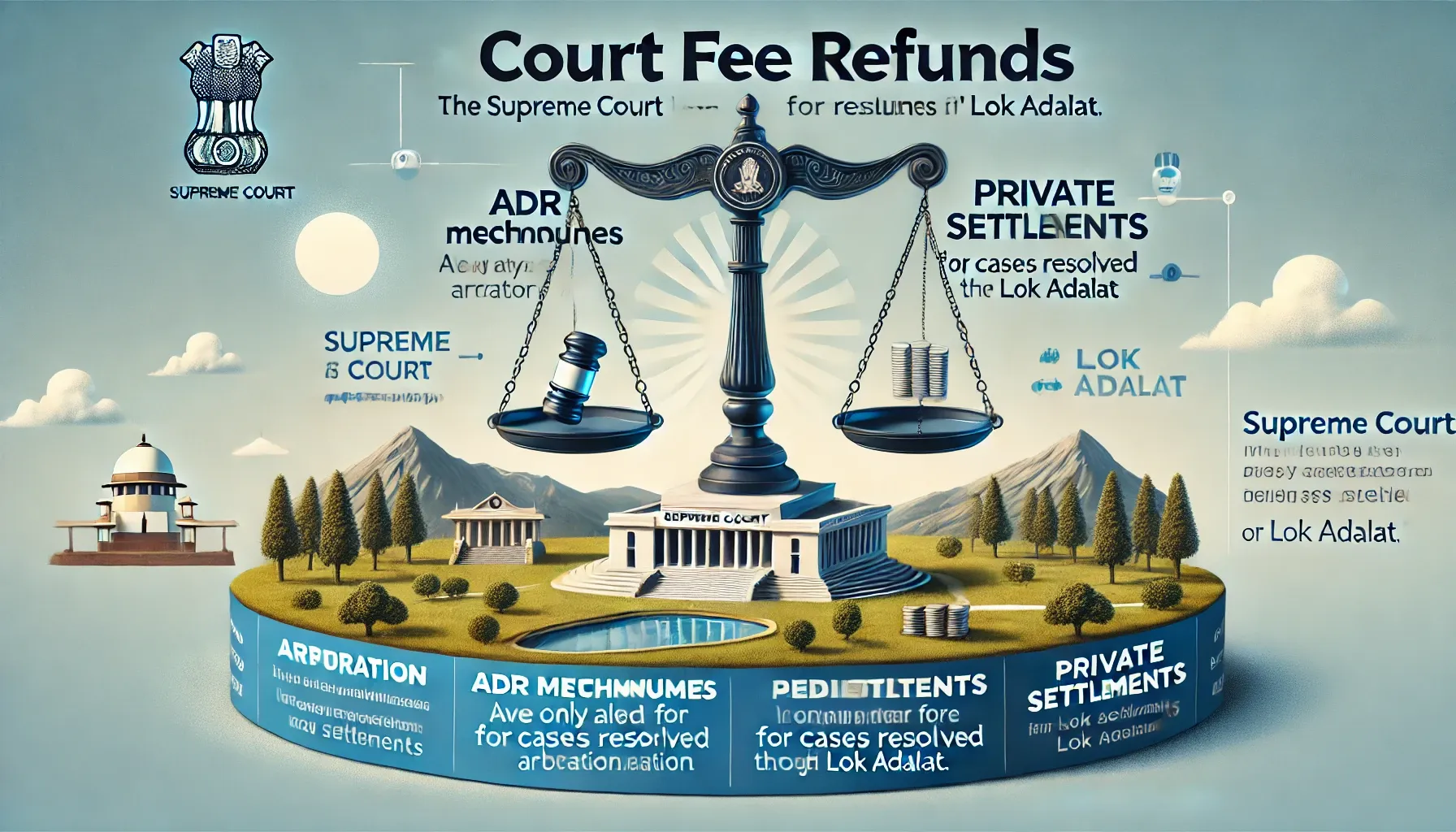The Supreme Court ruled that court fee refunds are only applicable when disputes are settled through ADR mechanisms like mediation or Lok Adalat. Private out-of-court settlements do not qualify.

The Supreme Court of India has ruled that litigants who settle disputes privately outside the judicial system are not entitled to a refund of court fees. The ruling clarifies that refunds are only permissible when the case is referred to an Alternative Dispute Resolution (ADR) mechanism such as Arbitration, Conciliation, judicial settlement—including Lok Adalat—or Mediation and is decided based on such a settlement.
The bench comprising Justices Pankaj Mithal and Ahsanuddin Amanullah issued this ruling while hearing a Special Leave Petition (SLP) challenging the Punjab and Haryana High Court’s refusal to refund court fees to a petitioner who settled his case privately without ADR involvement. The Court upheld the High Court’s decision, emphasizing that private settlements outside ADR mechanisms do not meet the statutory criteria for refunds.
Supreme Court’s Observations on Court Fee Refund
- The Supreme Court reaffirmed that court fee refunds are permitted only when disputes are resolved through recognized ADR mechanisms and not in cases of private out-of-court settlements.
- The Court explicitly stated:
"The refund of the court fees is permissible only if the matter is referred to Arbitration, Conciliation, judicial settlement, including through Lok Adalat or mediation for settlement and the case is decided in terms of such a settlement and not otherwise." - Since the settlement in this case was reached privately between the parties and was not facilitated by any ADR authority, the Court held that the High Court had correctly denied the refund request.
Case Background and High Court’s Decision
- The petitioner had initially filed a civil suit, which progressed to a first appeal and then a second appeal before the Punjab and Haryana High Court.
- While the case was pending, the parties reached an amicable settlement privately, without involving arbitration, mediation, Lok Adalat, or any other ADR forum.
- The petitioner sought a refund of the court fees paid at all three stages of litigation (trial court, first appeal, and second appeal), citing the private settlement.
- The High Court rejected this request, stating that only settlements facilitated through ADR mechanisms qualify for court fee refunds under law.
Supreme Court’s Verdict
- Affirming the High Court’s ruling, the Supreme Court held that the second appeal was resolved through a private settlement and not under any ADR mechanism, making the petitioner ineligible for a refund.
- The Court noted:
"In the case at hand, the settlement in terms of which the second appeal was decided by the High Court is not on reference to any of the above authorities/fora; rather, it was an amicable settlement out of the court." - The bench concluded that there was no illegality or error in the High Court’s decision to refuse the refund claim.
Key Takeaways from the Judgment
- Court fee refunds are strictly limited to cases resolved through ADR mechanisms.
- Private settlements outside court do not meet the legal requirements for court fee refunds.
- Litigants must engage in formal ADR processes like Arbitration, Mediation, or Lok Adalat to claim refunds.
- The decision upholds the distinction between evidence-based settlements and private negotiations.
Case Title: JAGE RAM VERSUS VED KAUR & ORS.
Attachment:





